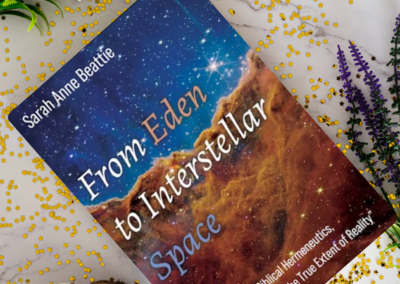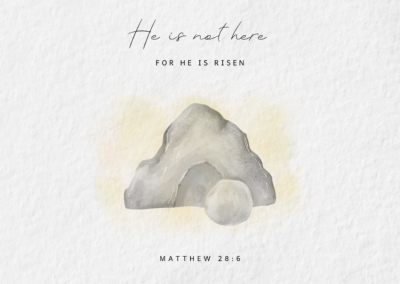Pain and suffering, and by extension, the fall have always been central questions in my life. I grew up in Brazil as a missionary child and was exposed to extreme poverty and brokenness; I was always keenly aware of the contrast that living in NZ was, to the levels of poverty and crime I saw in Brazil. But my own personal experience with pain and suffering began when we returned to NZ and I had a horrific head injury as a spectator watching the stockcars when a piece of metal flew off a car and broke my scull. To condense a long story, this has left me with chronic pain for the last 20 years, and a life dictated by the consequences of this event. The questions I sought as to ‘why’ this happened, and the very dissatisfying answers I received, set the foundation the course my studies took. I became interested in existential questions which theodicies should lead us to – how, therefore, do I live with suffering?
The aim of this blog is not to introduce anything new, but to try and speak hope into our lives that the God we love is bringing creation to its intended purpose through suffering, and that our very lives are wrapped up in that. I will do this the in two sections. Firstly, I’ll briefly outline my own personal theological understanding in regard to theodicy. To make sense of suffering, to find meaning, we do need to have a framework for where it sits, and depending on what your theodicy is, this will frame how you view suffering and God.
And secondly, I want to address the existential question that all theodicies need to get to if they are to be of any use. Once we are left with our defenses/theodicies – now what? How do I live? How do I have hope in a world that has so much suffering?
This first section is a look at the gritty human struggle. It’s also been an intellectual and academic venture, but it’s a very personal struggle every person goes through. There are different ways to understand the fall while accepting evolution. The first, probably most well-known one, is to attribute the violence and suffering of evolution with the fall of humanity in the Garden. All creation suffers for the sins of Adam and Eve, and not from the design or will of God. This, of course, is problematic as we know, because there is no empirical evidence for a metaphysical change when humanity shows up. Modern humans are relatively newcomers to earths stage, so we weren’t around when predation and violence started. This has led to theodicies that place the fall in some other agency, usually a satanic figure that was lurking around at the start of creation and set evolution off in this tangent we now see. Lions, of course, should be vegetarians, metal parts of cars should bounce off skulls, not crack them and so on.
Narratives of the fall by some agency, human or satanic, that account for suffering, aim to let God off the hook; the suffering in the world was never God’s intention, but humanity or Satan went ahead and stuffed it all up! Suffering is a punishment for our sins, or some rebellion, and God cannot be blamed. These are the narratives that were generally accepted in my circles when I grew up, and there was never much any pushback. We sinned, or the Devil made me do it etc.
For my own struggle with the pain associated with being human, this just does not sit well. To say that violence and pain in this world were never intended by God flies against so much of what we hold to be true of scripture, particularly that God is almighty and loving and that the world God created is a “very good” world. And I think for someone who is experiencing some pretty severe suffering, like the death of a loved one or the ravages of disease and, pertinently right now, the horrors of war – this is not a good enough explanation for our all-loving God. The fall by an agency, human or otherwise, concedes too much, it places God in a position where it’s like “oops, ah! Ok, um, shoot, this world has gone waaaaay of course, I didn’t mean for this to happen! Ok I better work out a way to fix it. Ok, I know! I’ll be crucified!”
We are told 7 times in Genesis 1 that what God has created is good. Finally, after creating humanity as the capstone of the creation Yahweh observed all that was was good, and not just good but very good. Note here, God didn’t say it was finished, only that it was very good. This leads me to hold the position that the physical history of the world, the violence, the predation, the disease, the natural disasters, and so on were all created by God and declared to be good. The idea of some agency having that much of an effect on how the physical outworking of creation doesn’t fit with God’s declaration of goodness.
There is another way to look at this, and that is to see the fall not as a metaphysical disruption, but a relational one. One that absolutely has physical repercussions, but this is due to a turning away from God and the call he placed on us. The fall is responsible for sin and the brokenness that ensue from this, but I can’t concede God’s act of creation itself was corrupted before the declaration that it was good.
Where did these narratives of agency come from? Saint Augustine has been used as an authoritative source for the rejection of biological evolution because it doesn’t fit with this idea of a fall from perfection. The Problem of Evil credited to St Augustine has had an immense influence over Western Christianity. At the core of Augustine’s theology and the Augustinian theological tradition, is an approach to evil marked by privation theory. Privation theory asserts a primal purity, and a fall corrodes the original state. His cosmology is complex and very fascinating. If you manage to get through it, you will come to see that Augustine does not in fact, state that the violence, death, and predation have anything to do with the fall of humanity (he does think that human death is a result of the fall – but context). Briefly, Augustine believes Genesis is telling us that anything that is corrupt is, in fact lacking in being, God is being itself, so any lack is a corruption, not a thing in itself, it is a privation. Creation itself, predation, earthquakes, and all, are acting as they should. The fall then, as I understand it, is a break in the relationship between humanity and their creator, and the consequences extend into the natural world. The fall is very real, sin is very real, and it has touched all areas of creation. But the lions were always meant to hunt.
And this is a hard truth. At this point it’s kind of like, whaaat? You did this on purpose? I want to go back to the Satan option, it’s a lot easier when he was the bad guy! The way the world is, with inherent pain and suffering is the world God made in which God’s purposes are revealed. That’s a tough pill to swallow, because so many just normal life things are hard.
So where does this leave us? The only form of an answer we can get and it’s what scripture has told us all along; all creation is centered on the cross. And the cross itself is a picture of suffering.
If, as the gospel claims, the goal of our existence is to be united to Jesus, then finding him in our suffering is the point. The life, death and resurrection of Jesus didn’t occur because of the fall, the cross was always our way to God. The cross is the answer to our suffering, and suffering brings us into the heart of God, restoring all the brokenness in relationships caused by the fall.
It’s been a long, slow shift for me to understand suffering in this way. We have this idea that any hardship is a sign that we’re off course or something has gone wrong. There is a massive roadblock in front of the very wonderful plans I have for my life. These beliefs we have about suffering expose the cracks between our assumptions as to how things should go, and what scripture actually says. The biblical narrative doesn’t show God jumping from the Garden of Eden to the new Jerusalem in Revelation. It has a whole lot of messy humanness in between, and right there in the middle of this, Christ is crucified. This is the focal point for all creation, and the lens through which we are to understand our suffering. The cross isn’t a rush attempt by God to fix the wreckage left by humans or other agency; the cross is the point.
Richard Rohr, writes:
“If you are lucky, God will lead you to a situation that you cannot control, you cannot fix or you can’t even understand. At that point, true spirituality begins. Up to that point, it’s all just preparation.
“Does suffering always lead to the second half of life? (The truly spiritual, outside the ego part).
“Not always, sometimes it just leads you to circle the wagons of your own little group. It depends on whether you deal with your suffering in secular space or sacred place.
“The secular response to suffering is to fix it, control it, understand it, looks for someone to blame. You learn nothing. Unless suffering pulls you into sacred space, it doesn’t transform you. It makes you bitter.[1]
The fall is what keeps us in the “ego part,” it disrupts the relationship we’re created to have with God, as well as with each other, and all of creation.
I want to say, that if like me, you’re in the part of the story where suffering is the main plot – this isn’t the end. And it may seem even seem like an insult to even say this to you. I understand. There is great hope for a better ending, and we know this because Christ is risen. Suffering does not mean you have veered off course, it is the very thing that tethers you to where you are meant to be, to intimacy with our Creator whose hands still bear the scars of his suffering.
The Bible never told us we weren’t meant to suffer. Time and time again, I seem to forget this, which adds much unnecessary suffering. In a very Job way, I’ve asked God, ‘did you fall asleep at the wheel while running the universe, there seems to be some neglect here.’
To which God answers in a very Socratic way:
“Where were you when I laid the earth’s foundation?
Tell me, if you understand.
Who marked off its dimensions? Surely you know!
And still we say, ‘well, um, no, I don’t know. But, if you were up to some constructive feedback?’
“Can you draw out Leviathan with a fishhook
or press down his tongue with a cord?
Can you put a rope in his nose
or pierce his jaw with a hook?
Point taken, but it took a battle. The intricacies of the universe are very much known by God, who is neither surprised, nor overwhelmed by them.
The truth is, I don’t know why God created the world in this particular way, why suffering seems to be so integral to the story. I also don’t know where the effects of the fall begin, and what is just suffering because of how God created. But I do know that God didn’t fall asleep at the wheel. That the unfolding story of creation hasn’t run away from God, and God is trying to somehow get it back together, even though it often feels as though it must have.
The story you and I, and all of creation are a part of hinges upon the cross, so we already know the ending, even if we can’t quite see it. Where we are in the story is not the final say. Only by turning to the source of our being, which suffering seems to be integral for, can we hope to find restoration from suffering.
This doesn’t take away my pain, but it does alleviate a great deal of my suffering. To know that I (you) are not lacking because I spent 10 years on an invalid’s benefit, that I (you) am not “behind” because I don’t have a PhD. Or you didn’t get that job, you got sick, you can’t have a family, you lost your livelihood. I probably could have been saved from a lot of suffering if I understood I am in a particular season in the grand narrative. But I knew the plans I had for me, and this current situation of chronic pain was not in those plans.
I am not lacking, and neither are you; the very thing that I am trying to fight or find reason for, is the very thing that is drawing me to the heart of God.
How do I (we) do this? I will end with a quote from the beginning section of St Augustine’s Confessions, which states, “You have made us for yourself, O Lord, and our heart is restless until it rests in you.”[2] Suffering brings us to our Saviour. And so, we pray, we let God transform us, and draw us near; we grieve, we grieve for what is lost, we grieve for how sin makes turn us away from God and God’s truth. We grieve that the fall has created such brokenness in ourselves and the world, that nothing is left untouched. And we do this in community, by being the hands and feet of Christ to those around us. I can’t tell you how many meals I have had made, how many offers to take care of my children or pick things up for me. The resurrection has changed the way we are meant to be in this world. How we respond to suffering, is meant to change the world, because we are cocreators with God. We are to share and hold each other’s brokenness in the knowledge that God is writing the ending, and it will somehow, end well, knowing the very suffering we face is the thread that weaves us closer to the heart of Christ.
[1] Interview with Richard Rohr, https://uscatholic.org/articles/200806/dont-miss-the-second-half/
[2] St. Augustine’s Confessions (Lib 1,1-2,2.5,5: CSEL 33, 1-5)



